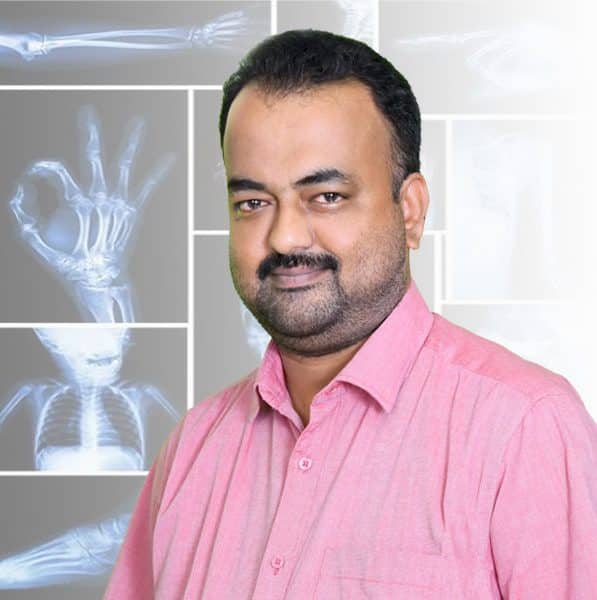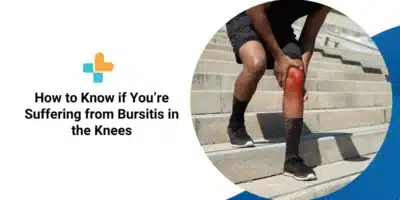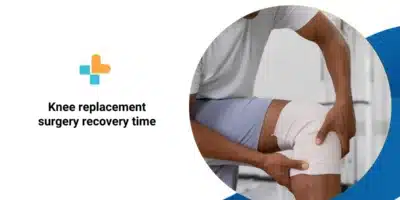Knee pain afflicts millions of people on an everyday basis and wreaks havoc on the quality of lifestyle. As per the Arthritis Foundation in the USA, 1 in 3 people falling in the age group of 18-64 have arthritis that is becoming the leading problem of disability among people.
Causes of knee pain can vary from person to person, and so does the treatment. This post covers various types of knee pain and outlines how surgical or non-surgical treatments (including physiotherapy) can help. It is, however, important to understand that one should let a doctor decide the best course of action, surgical or non-surgical for any serious injury.
Regular exercise helps you keep the body fit but depending on the physical activity for the recovery from knee pain is nothing less than vandalization. So, it is highly recommended to get yourself tested if you are uncomfortable with knee pain and treat yourself as soon as possible.
Causes of knee pain
Knee pain usually prevails in a specific area, or it can diffuse throughout the knee. The main causes of knee pain that we come across are:
- Dislocation & fracture
- Age-related problems
- Underlying infection osteoarthritis
- Degenerating bones
- External or internal injury
What type of knee pain do you have?
Patients experiencing knee pain must determine which type of pain you are suffering for better diagnosis and treatment. Here are types that patients suffer from:
- Acute pain: This refers to a severe pain that usually stays for 1-7 days. In case of an injury, one should rest their knee for at least a week to heal the injured area.
- Subacute pain: This pain remains for 2-6 weeks after the injury, and you need to initiate some gentle motion moment.
- Chronic knee pain: This pain lasts longer; that is for more than 8-12 weeks. Such illnesses require immediate doctor consultation.
At any point of time, if there is a lot of pain or the intensity of pain does not go down, one should immediately consult with a doctor, irrespective of the type.
Location of the knee pain symptoms
- Pain in the front of the knee: The front knee pain refers to a patellofemoral stress syndrome that indicates the issue in the positioning and tracking of the kneecap. People suffering from this pain may feel uncomfortable while kneeling, running, jumping, and ascending or descending stairs.
- Pain on the outside of the knee: This type of pain is typically caused by either an injury or heavy exercising. Other reasons that can cause pain on the outside of the knee are iliotibial band stress, ligament stress, and the strain in the hamstring tendons.
- Pain inside the knee: Pain inside the knee indicates an injury to a medial collateral ligament or medial meniscus. The cause of the damage is usually a substantial athletic activity, which leads to twisting of the knee, or it could be due to wear and tear of the ligament.
- Pain in the back of the knee: Pain in the back of the knee is quite rare in patients. The possible causes for this pain are Baker’s cyst or the hamstring strain. Baker’s cyst refers to abnormal swelling of the knee joint present on the back of the knee, which often causes severe swelling while the person bends.
How can physiotherapy help alleviate knee pain?
- Eliminates or reduces pain: Many therapeutic and manual techniques help in relieving knee pain. Techniques like joint and soft tissue mobilization, ultrasound, and electrical stimulation help in restoring the joint functioning by eliminating pain. Such therapies are fruitful and can help in preventing knee pain to return.
- Increases mobility: Regular physiotherapy sessions are imperative as they aid in strengthening the joints and muscles without the intake of any drugs. It also helps in increasing the flexibility of the joints and muscles.
- Manages age-related issues: Most of the aged people require regular physiotherapy sessions to continue with daily routine activities. Some people who have undergone knee-replacement surgery physical therapy become essential to have a faster recovery.
- Improves fitness: Physiotherapy, directly and indirectly, helps the human body to recover from any pain and strengthens the immune system as well.
It must be noted that physiotherapy should be carried out under the instructions or supervision of a certified physiotherapist. In absence of it, any exercise can cause further damage to the knee.
Types of Surgeries
Most doctors, depending on the severity of strain on the affected area, will recommend one of the four options available that include physiotherapy, surgery, medications, and injections.
Following the diagnostic process, many patients suffer from severe knee problems to whom doctors suggest various surgical treatments.
Enlisting some of the conventional surgical procedures that have successfully helped patients to restore the knee functionality:
Unilateral and Bilateral total knee replacement
The damage of one knee leads to the recommendation of unilateral knee replacement surgery. Specialists perform this surgery to replace all the damaged parts of the knee with artificial ones and enable the person with smooth knee functioning, including running, bending without causing any pain.
Similar to unilateral knee replacement, the surgery is accomplished to repair both the knees and relieve the patient from the unbearable strain. Artificial ones place all the damaged knee parts on both knees.
The patient needs to stay for 2-3 days in the hospital, and after 3-6 weeks, the daily routine resumes in both processes.
ACL tear surgery
Also known as arthroscopy or key-hole surgery, it is performed for repairing the torn ligament of the knee. The anterior cruciate ligament is an important ligament that aids human knee movement. Partial or complete damage of the ligament requires immediate surgery to continue normal functioning.
The arthroscopic surgery performed for repairing the ligament takes 2 hours, and you need to stay for one day in the hospital. It takes 2-3 weeks to resume the routine after this surgery.
PCL tear surgery
The patients undergo this surgery to treat the pain, wobbliness and swelling in the posterior ligament of the knee. The posterior cruciate ligament plays a major in the movement of the knee, and its partial or complete tear can create several problems.
The treatment helps the patient in resuming normal knee activities like running, bending, walking without any discomfort.
Again to repair the ligament, the arthroscopic surgery that takes 2 hours to complete is performed, and the patient needs to stay for one day in the hospital. The recovery period is 2-3 weeks for any patient.
Medial meniscus surgery
The patients housing damaged cartilage that acts as a shock absorber in the knee undergo this surgery. The arthroscopic surgery aims to stitch the torn meniscus and relieve the patient from pain.
The surgery takes an hour to complete, and the patient needs to stay for a day in the hospital. The recovery period in most cases is 2-3 weeks.
All the above treatments accompanied by physiotherapy help the patient in faster recovery and resuming the routine practices.
Physiotherapy increases the flexibility of knee muscles and joints after the surgery and also helps to maintain strength and normal functioning.
So, all the patients suffering from severe knee pain must consult the doctors and get themselves treated.
Choose Ayu Health
Ayu Health is India’s most trusted network of hospitals. Ayu Health offer all advanced Knee Pain treatment procedures and carry mandatory certifications from the government authorities. Our treatment centers have all the latest equipment to cure knee-related problems and are accredited by NABH, India’s premier hospital accreditation body.
If you are looking for a leading orthopaedic doctor who can treat and perform effective knee surgeries and assist with physiotherapy or suggest the best methods to get the procedure just right for you in India, you can call +91 – 6366 100 800 or visit us at https://ayu.health/bangalore/speciality/Orthopaedics-4 book an appointment or to know more.
Our Hospital Locations
Orthopaedics Surgery Hospitals in Chandigarh | Orthopaedics Surgery Hospitals in Bangalore | Orthopaedics Surgery Hospitals in Jaipur | Orthopaedics Surgery Hospitals in NCR | Orthopaedics Surgery Hospitals in Hyderabad
Our Doctors
Orthopaedics Surgery Doctors in Chandigarh | Orthopaedics Surgery Doctors in Bangalore | Orthopaedics Surgery Doctors in Jaipur | Orthopaedics Surgery Doctors in NCR | Orthopaedics Surgery Doctors in Hyderabad
About the Author

Dr. Manjunath Kumar K.
Dr. Manjunath Kumar K. is a renowned Orthopaedics currently practicing at Ayu Health, Bangalore.
He is an orthopedic surgeon currently practicing at Mallige Medical Center, Bangalore. A highly qualified doctor, he has completed his MBBS from Bangalore Medical College and MS in Orthopedics from KIMS, Hubli. further higher surgical training was from England, Birmingham. His post-graduate degree from the royal college of Edinburgh and the Royal College of Ireland. He also has vast experience in treating Unilateral Total Knee Replacement, Bilateral Total, Knee Replacement, Total Hip Replacement Surgery, and ACL Tear



